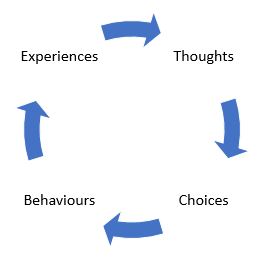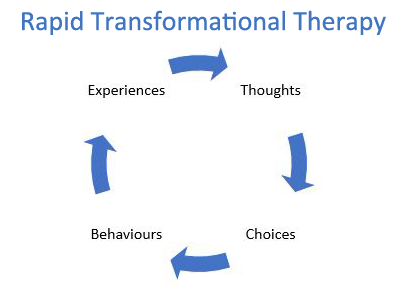The philosopher Aristotle said “Give me a child until he is 7 and I will show you the man” – as we are growing up our subconscious learns from our experiences and creates a series of programmes. If you think about when you were learning to drive, the you first time you sit behind the steering wheel is often scary, there is so much to think about all at once, your hands on the steering wheel and changing gear, feet moving independently on the pedals, noticing everything that is going on all around in the wider environment, other cars, pedestrians, cyclists, even the potential for someone (or an animal) to run out into the road in front of you; but very quickly it becomes inbuilt into our subconscious, it begins to feel completely natural and over time we get so used to driving we find that we have driven several miles without knowing how we have got there – we have created a programme in our mind that tells it how to drive.
How do we create programmes?
95% of who we are is determined by our mid-30’s, we are a series of programmes which our subconscious has created based on experiences we have had and the beliefs we have made as a result of them.
Sometimes we know where our issues come from; if you were bitten by a dog as a child you may be scared of them as an adult. We don’t even have to experience it physically, there are lots of adults who admit to being afraid of swimming in open water, and most especially of sharks, because they watched Jaws as a child.
However not every thing is an obvious connection, more often than not we operate our daily lives in a form of hypnosis being controlled from our subconscious mind. We get up at the same time, go through the same bathroom routine, eat the same breakfast, drive the same way to work, have similar conversations with the same colleagues or customers, eat the same lunch and then drive home the same route each evening. We have between 60,000 to 70,000 thoughts a day but 90% of those are the same ones as the day before (and the vast majority of those thoughts are in our subconscious mind – meaning that we aren’t even aware that we are having the thoughts).
Why do we behave this way?
This is all a natural part of our biological design, and it’s designed to keep us safe – the mind will do whatever it thinks it needs to in order to keep us safe and comfortable; but it’s also why we find it so difficult to make changes in our lives. Thinking the same thoughts means that we make the same choices, the same behaviours and they in turn create the same experiences which recreate the same thoughts; we find ourselves trapped in a loop and if we try to do something outside of our programme it feels scary as we become vulnerable so the mind tries to protect us and drag us back to the familiar – how often have you set a new year’s resolution to start exercising more, lose weight, or stop smoking and by mid-January given up? It’s not our fault, it’s the way we are designed.

In order to make change easier we need to become aware of the underlying beliefs that are buried in our subconscious, break up the thought patterns and create powerful new beliefs. By convincing the mind that the changes are safe, that they are going to make life better for us and tell the mind that it’s what we want to think, feel and experience now, the mind can then support the change instead of sabotaging it.
How to make changes to your thought process
This is where Rapid Transformational Therapy (RTT) can help support the change process, Rapid Transformational Therapy is a powerful tool to help make quick and lasting changes to the mind. Rapid Transformational Therapy uses hypnosis to identify the root cause of an issue and find the beliefs buried deep in the subconscious (and often unknown to the conscious mind) and then tell the mind and body to react and feel differently, so that issues such as depression, anxiety, phobias, panic attacks or habits can be overcome easily and effortlessly. This gives the client the power in their mind to make lasting changes in their life and feel free of their issue.
Look out for Helen’s next article which will outline what Rapid Transformational Therapy is and how it can help us alter the programmes we’ve made for ourselves.





